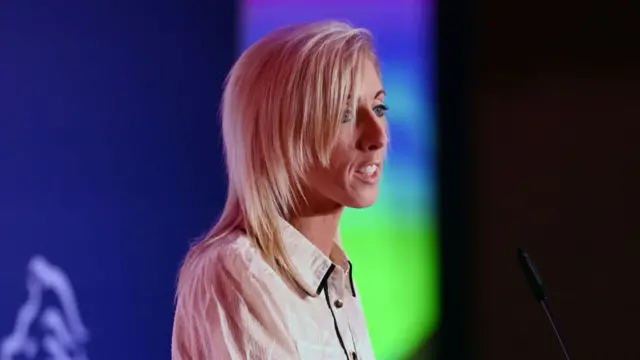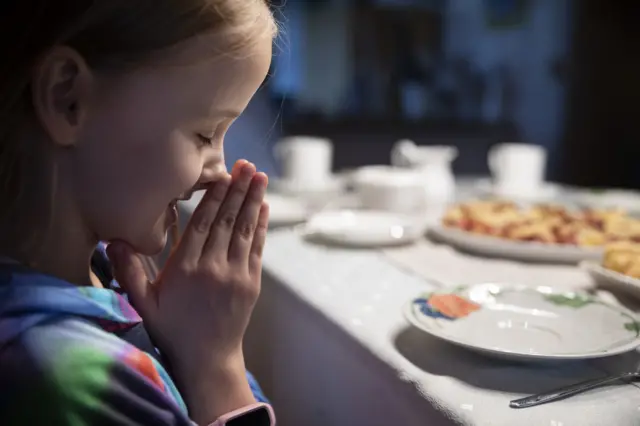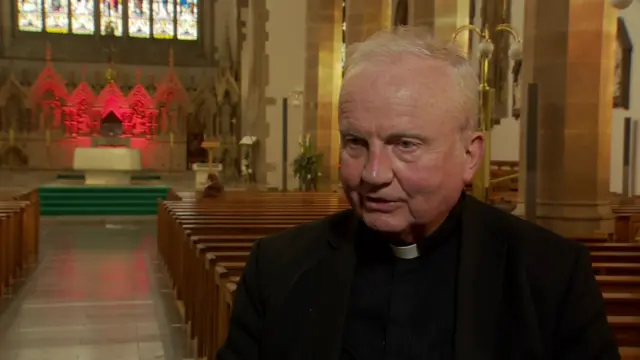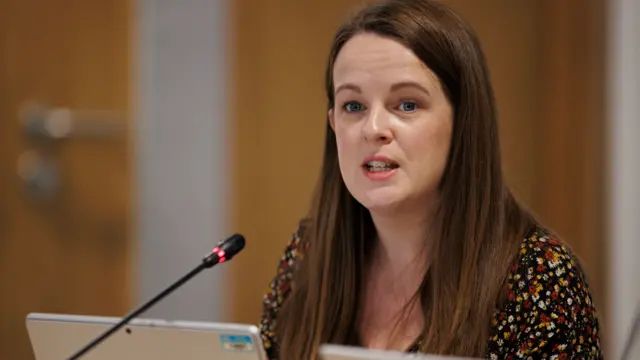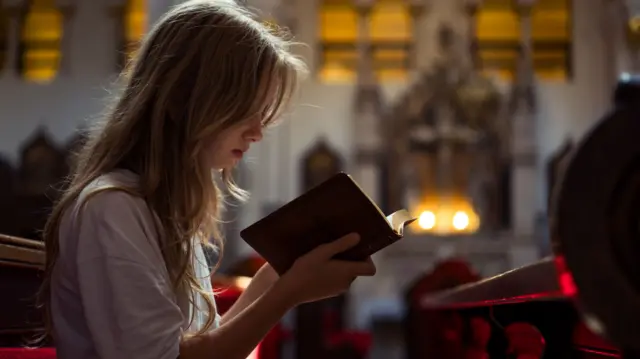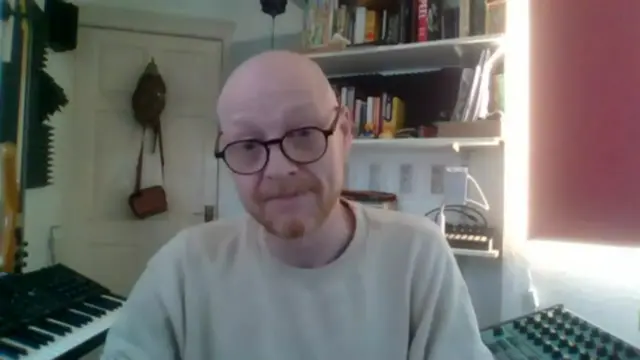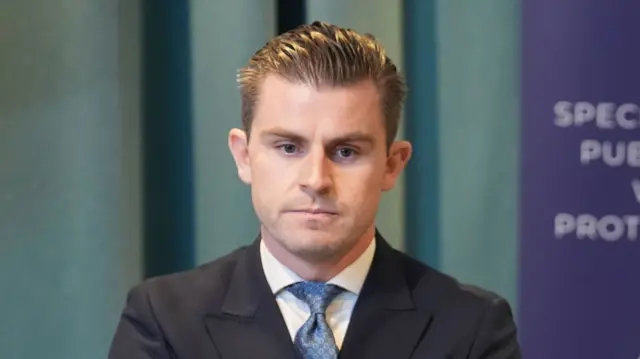Girl's family says withdrawing her would have left her 'stigmatised'published at 13:33 GMT
 Chris Page
Chris Page
BBC News Ireland correspondent
One of the pivotal questions in the Supreme Court’s 40-page judgement is about the existing legal right of parents to withdraw children from RE lessons and collective worship.
The Northern Ireland Court of Appeal had previously ruled that, in effect, the provision was sufficient to protect families’ educational entitlements under human rights law.
The Supreme Court said that “exercising the right of withdrawal is not that simple, either for parents or for schools” – because decisions about practical arrangements for the pupils “involve discussion and negotiations”.
The 11-year-old girl, whose family brought the case, said that withdrawing her from RE and worship would have left her “stigmatised” – because, for example, she would have been the only pupil in her class not to take part.
These factors led the Supreme Court to rule that the right to withdrawal placed an “undue burden” on parents.
